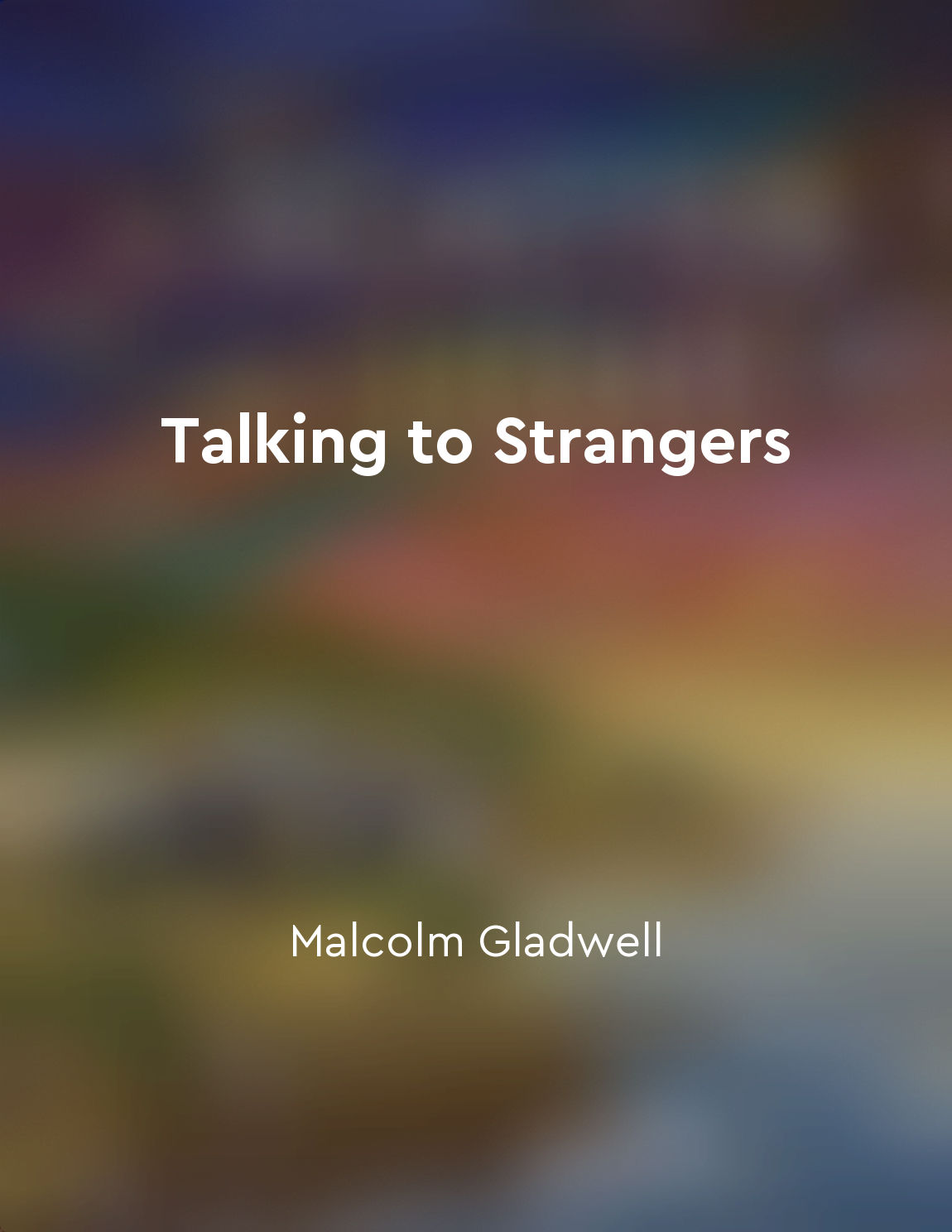Our assumptions about strangers are often inaccurate from "summary" of Talking to Strangers by Malcolm Gladwell
In our daily interactions, we tend to make assumptions about strangers based on their outward appearance or behavior. These assumptions are often rooted in our own biases and preconceived notions, leading us to misjudge people without truly understanding them. Malcolm Gladwell delves into the complexities of human interaction in his book 'Talking to Strangers', shedding light on the fallibility of our initial perceptions. Gladwell presents a compelling case for why we struggle to accurately gauge strangers, emphasizing the importance of context and individual differences in shaping our understanding of others. He highlights the limitations of our intuition and the inherent challenges in interpreting nonverbal cues, which can often be misleading or misunderstood. Our reliance on these superficial indicators can lead to misguided assumptions and faulty judgments, creating barriers to meaningful communication and connection. Moreover, Gladwell explores the impact of societal norms and cultural differences on our perceptions of strangers, illustrating how these factors can influence our interpretations and interactions. He challenges the notion that we can easily "read" people based on external cues, arguing that our implicit biases and social conditioning can cloud our judgment and hinder our ability to truly see others for who they are. By unpacking the complexities of human communication and interaction, Gladwell prompts us to reconsider our assumptions about strangers and approach them with greater empathy and understanding. He underscores the importance of curiosity and open-mindedness in navigating unfamiliar situations, urging us to look beyond the surface and engage in genuine dialogue with others. In a world marked by increasing division and distrust, his insights offer a valuable roadmap for bridging the gap between strangers and fostering a more inclusive and compassionate society.Similar Posts
Demonstrating empathy towards difficult individuals
When it comes to dealing with difficult individuals, one of the most important things we can do is demonstrate empathy. This me...
Practice observing nonverbal cues in various social settings
To truly understand nonverbal communication, you must immerse yourself in various social environments. This means stepping out ...

Be genuine in presenting your true self
When you present your true self to the world, you allow your most authentic qualities to shine through. This means being honest...

Understanding culture is essential
To effectively engage in intercultural communication, individuals must recognize and appreciate the significance of understandi...

Context is crucial in analysis
To properly analyze people, it is essential to consider the context in which they are situated. Context provides valuable infor...
Pay attention to cultural differences in communication
Understanding cultural differences in communication is crucial when it comes to building successful relationships. Different cu...
Decode facial expressions
Facial expressions are powerful tools when it comes to understanding what someone is feeling or thinking. By learning how to de...
Context is crucial for interpretation
The context in which a message is delivered plays a crucial role in how it is interpreted. Different situations, surroundings, ...
Network and build relationships
Building a network and forming relationships are essential aspects of effective communication. It is not just about making conn...
Incongruent body language can indicate deception or hidden emotions
The body never lies. It has its own language, one that often reveals what words cannot. When someone's body language is incongr...

